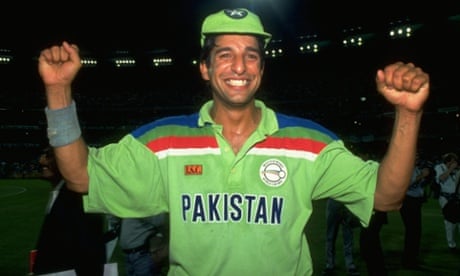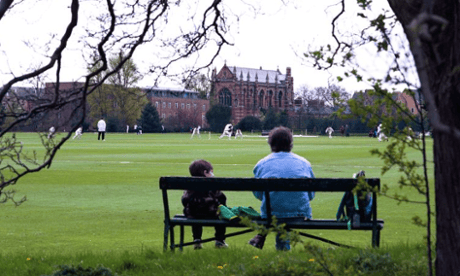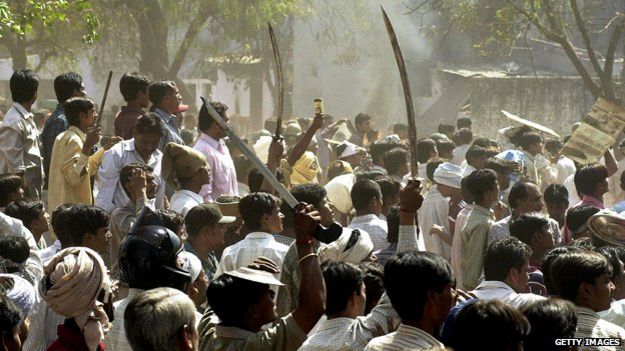By John Moylan
- 3 hours ago 9 April 2015
- Business

There could be up to 100 billion barrels of oil onshore beneath the South of England, says exploration firm UK Oil & Gas Investments (UKOG).
Last year, the firm drilled a well at Horse Hill, near Gatwick airport, and analysis of that well suggests the local area could hold 158 million barrels of oil per square mile.
But only a fraction of the 100 billion total would be recovered, UKOG admits.
The North Sea has produced about 45 billion barrels in 40 years.
"We think we've found a very significant discovery here, probably the largest [onshore in the UK] in the last 30 years, and we think it has national significance," Stephen Sanderson, UKOG's chief executive told the BBC.
UKOG says that the majority of the oil lies within the Upper Jurassic Kimmeridge formation at a depth of between 2,500ft (762m) and 3,000ft (914m).
It describes this as a "world class potential resource" and that the well has the "potential for significant daily oil production".
Compared with similar geology in the US and West Siberia, it estimates that 3% to 15% of the oil could be recovered.
Underground riches
Oil has been produced onshore in the South of England for decades. There are currently around a dozen oil production sites across the Weald, a region spanning Kent, Sussex, Surrey and Hampshire.
Last year, a report for the government by the British Geological Survey estimated that the region may have shale oil resources in the range of 2.2-to-8.5 billion barrels, with a central estimate of 4.4 billion barrels of oil.
UKOG says that it drilled the deepest well in the region in the last 30 years and that the results "comprehensively change the understanding of the area's potential oil resources".
"Based on what we've found here, we're looking at between 50 and 100 billion barrels of oil in place in the ground," says Mr Sanderson.
"We believe we can recover between 5% and 15% of the oil in the ground, which by 2030 could mean that we produce 10%-to-30% of the UK's oil demand from within the Weald area."
'Significant'
Work currently under way at Imperial College also suggests that there may be more oil in the region than previously thought.
Professor Alastair Fraser has used some of the most sophisticated equipment in the world, based at the University of Utah in Salt Lake City, to analyse rock samples.
His study of a third of the Weald came up with a resource of 13 billion barrels.
"So if I scaled that up, we are coming up to numbers of 40 billion barrels," he told the BBC.
"Now that's getting significant. That's a resource. That's what's there in the ground. We've still got to get it out."
Fracking unnecessary
Most experts believe fracking, or hydraulic fracturing, will be needed to get commercial quantities of oil from the region.
Concerns over fracking led to large-scale protests when Cuadrilla drilled at Balcombe, West Sussex, in 2013.
But UKOG has consistently stated that it is not intending to use fracking, which involves pumping water, sand and chemicals into rocks at high pressure to liberate the oil and gas trapped within.
It says that the oil at Horse Hill is held in rocks that are naturally fractured, which "gives strong encouragement that these reservoirs can be successfully produced using conventional horizontal drilling and completion techniques".
The company says further drilling and well testing will be needed to prove these initial results.




 A Hindu mob confronts a Muslim one in Gujarat, 2002
A Hindu mob confronts a Muslim one in Gujarat, 2002